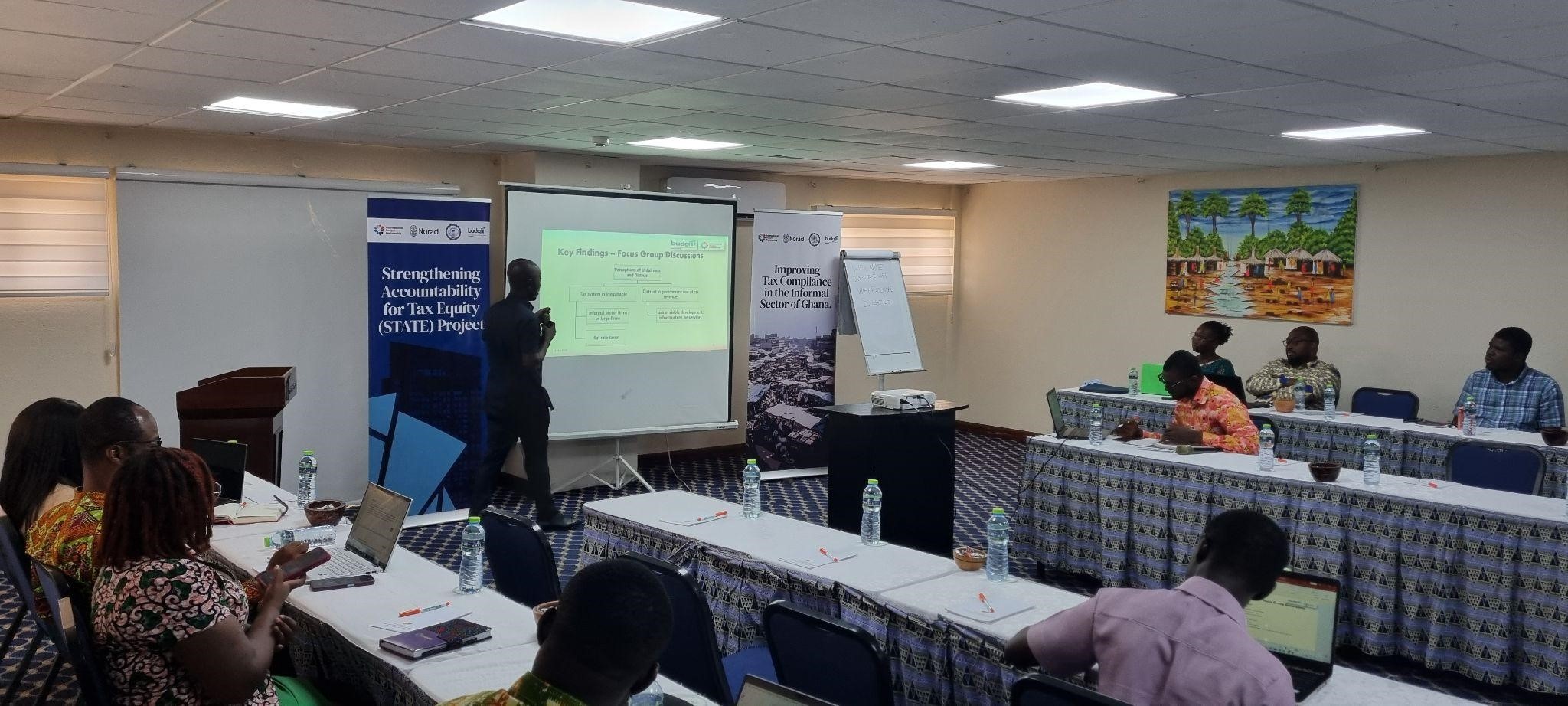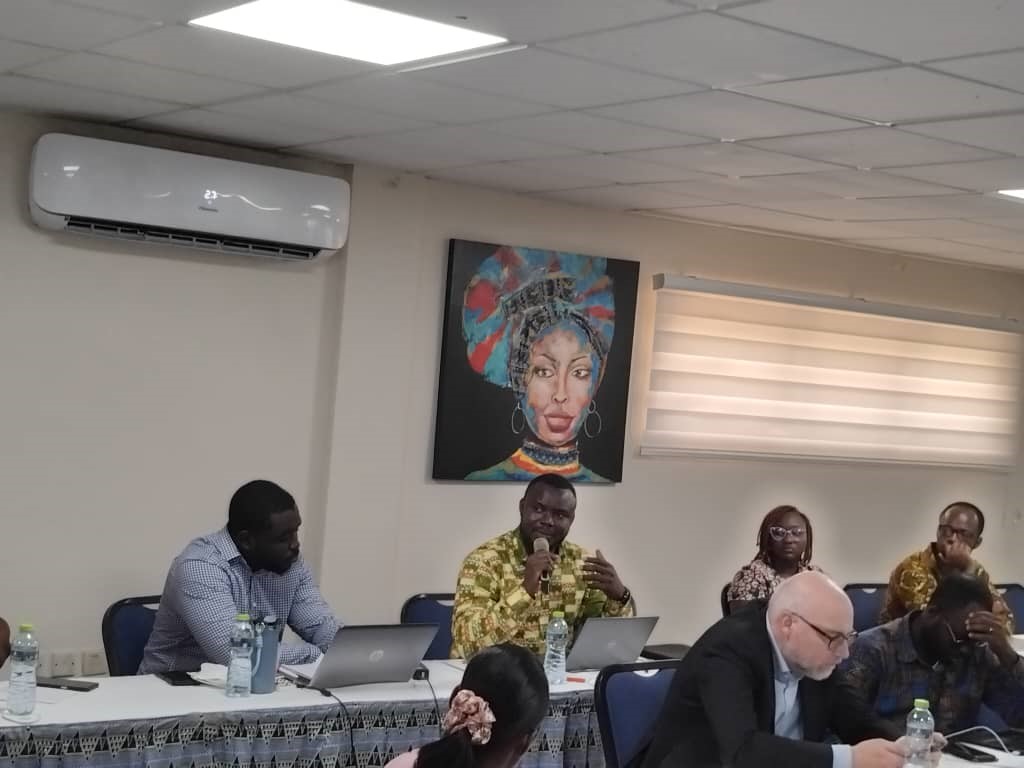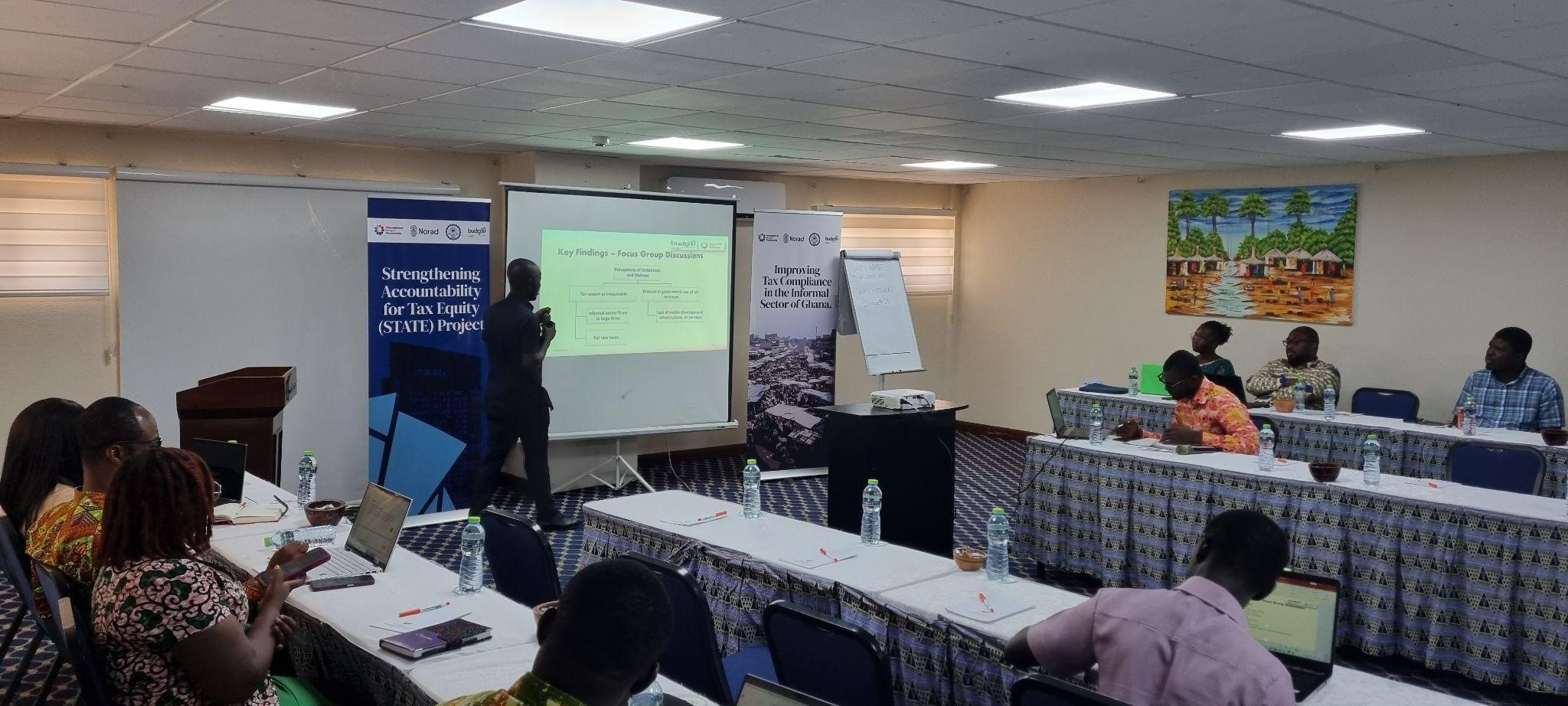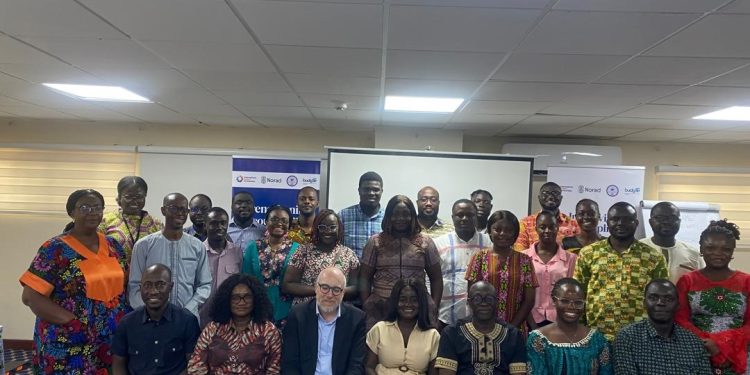BudgIT Ghana and Partners Converge to Validate Findings and Chart Inclusive Tax Reforms for the Informal Sector
The informal sector in Ghana remains a cornerstone of the national economy, employing millions and contributing significantly to GDP. Yet, despite its vast reach and resilience, it often operates on the margins of formal policy, lacking structured support, equitable taxation, and visibility in public finance discourse.
As part of efforts to study and harness the strengths of this sphere for the good of the Ghanaian economy, BudgIT Ghana held a data validation workshop to discuss findings of a research study it has been undertaking as part of a project collaboration with the International Budget Partnership (IBP) and the Society for Women in Taxation (SWIT) Ghana on tax compliance in Ghana’s informal sector.

This validation workshop is the final in a series of previous stakeholder meetings to discuss research instruments, methods and realities on informal sector tax compliance. The meeting stood out as a milestone event in Ghana’s civic landscape, underscoring the BudgIt Ghana’s commitment to inclusive policy-making and evidence-based advocacy.
Held on Friday, May 29, 2025, at the Sunlodge Hotel in Tesano, Accra, the workshop convened over thirty diverse voices from senior officials of the Ghana Revenue Authority, the Local Government Service, Metropolitan, Municipal and District Assemblies (MMDAs), civil society, academia, development partners, and community development advocates.
As the lead consultant, Professor Godfred Owusu methodically walked the room through the research findings, the meeting became a collective reckoning with the barriers that have long hindered Ghana’s informal economy from fully participating in the nation’s fiscal framework.
The opening remarks by our Country Manager, Jennifer A. Moffatt set the tone for rigorous scrutiny with collaborative civic problem-solving. Participants were invited not only to validate the data on tax knowledge gaps, gendered enforcement practices, and systemic mistrust but also to unpack the underlying social dynamics that shape compliance behavior.
We believe that informal workers are not statistics to be rounded up for only enforcement fora, but citizens whose livelihoods and dignity hinge on fair, transparent treatment, therefore policy solutions must be grounded in lived experience, or they risk deepening existing inequities.

Another key moment in the discussion of the findings was the issue of effective tax education. Attendees acknowledged that widespread confusion about what constitutes “tax” versus “local levy” has created a culture of reactive compliance, where traders pay only under compulsion rather than from genuine understanding.
Equally troubling was the finding that women who represent the majority of informal sector operators face disproportionate scrutiny and intimidation; a clear signal that any reform drive must embed gender sensitivity at its core. Wealthier, educated operators emerged as more likely to navigate the system successfully, underscoring the need to bridge information asymmetries through sustained, community-driven education initiatives.
Led by our project partner, Adelaide Nunoo, Programs Lead for IBP Ghana, the validation phase wound into multi-stakeholder dialogue, the focus shifted to what it takes to move from research to reform. Experts and practitioners alike voiced the necessity of streamlining registration processes and leveraging Ghana’s widespread mobile money infrastructure to simplify payment channels. There was considerable consensus around the idea of deploying mobile tax booths directly in market districts, thereby reducing travel time and bureaucratic hurdles.
More than once, participants emphasised that visibility as pertaining to public service delivery is vital; when traders can literally see the roads, clinics, or schools built with their contributions, trust in the revenue system deepens. The workshop created a platform for these insights to surface organically, ensuring that policy prescriptions would reflect the priorities and constraints of the very people they aim to serve.

Perhaps most striking was the consensus on institutional collaboration. Participants repeatedly highlighted the siloed nature of tax administration between national and local authorities, which not only breeds inefficiency but fuels perceptions of unfairness.
By fostering genuine partnerships between the Ghana Revenue Authority, MMDAs, and informal economy associations, BudgIT Ghana believes that Ghana can begin to chart a path toward equitable revenue sharing and joint accountability. The notion that tax officers could be trained as community liaisons rather than enforcers resonated deeply, signaling a shift from punitive compliance to participatory governance.
In the weeks ahead, the validated findings and refined recommendations will be collated into an official comprehensive research report document that will be unveiled to the general public and all stakeholders. From recommendations on leveraging mobile payment mechanisms to coordinating gender-responsiveness training for tax officers, BudgIT Ghana is prepared to collaborate with the government and all relevant partners to drive tangible reforms in the sector.
As an advocate for equitable, transparent governance, we believe that when citizens, government, and civil society engage as equals around shared evidence, the path to meaningful change becomes not only possible, but inevitable, and in the same regard, operate on the premise that research can fuel inclusive policymaking and move Ghana one step closer to a fairer, more accountable tax system that honors the dignity of every worker in the informal economy.








